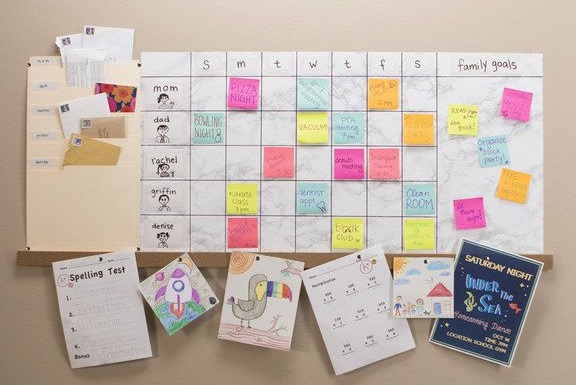
As speech-language therapists, we’ve had the privilege of working with countless families who juggle the demands of school, homework, and extracurricular activities. We understand how overwhelming it can be to manage these responsibilities while ensuring your child remains happy, healthy, and well-supported. The after-school hours are a crucial time for reinforcing what your child has learned in school, but they’re also an opportunity for growth in other areas—socially, emotionally, and physically. In this blog post, we’ll share some practical tips to help you and your child navigate these busy hours with more ease and less stress.
Establish a Consistent Routine
- Children thrive on routines, and having a predictable after-school schedule can make a world of difference. A consistent routine helps children know what to expect, reducing anxiety and helping them transition smoothly from one activity to the next. Here’s how to create an effective after-school routine:
- Set a Regular Time for Homework: Decide on a specific time each day when your child will work on their homework. For some children, it’s best to start homework soon after arriving home from school, while others might benefit from a short break first. Observe your child’s energy levels and focus to determine the best time for them.
- Incorporate Breaks: Breaks are essential for maintaining focus and preventing burnout. Depending on your child’s age and attention span, schedule short breaks between homework tasks or after completing a subject. A break could include a snack, some physical activity, or a quick chat with you.
- Create a “Wind-Down” Routine: After a busy afternoon of homework and extracurricular activities, it’s important to help your child transition to a more relaxed state before bedtime. Establish a routine that includes calming activities such as reading, taking a warm bath, or engaging in quiet play.
- Children thrive on routines, and having a predictable after-school schedule can make a world of difference. A consistent routine helps children know what to expect, reducing anxiety and helping them transition smoothly from one activity to the next. Here’s how to create an effective after-school routine:
Designate a Homework Space
- Creating a designated space for homework can help your child stay organized and focused. This space doesn’t need to be a separate room; it can be a corner of the kitchen or a spot at the dining table. What’s important is that it’s a quiet, well-lit area with minimal distractions. Here are some tips for setting up an effective homework space:
- Keep Supplies Handy: Ensure that your child has easy access to all the supplies they need, such as pencils, paper, scissors, and a calculator. Having these materials within reach will reduce interruptions and help them stay on task.
- Personalize the Space: Encourage your child to personalize their homework space with items that motivate and inspire them, such as artwork, a calendar, or a motivational quote. This will make the space feel like their own and create a positive association with doing homework.
- Limit Distractions: Turn off the TV and limit access to electronic devices that aren’t necessary for completing homework. If your child needs to use a computer, consider using apps or settings that block distracting websites during homework time.
- Creating a designated space for homework can help your child stay organized and focused. This space doesn’t need to be a separate room; it can be a corner of the kitchen or a spot at the dining table. What’s important is that it’s a quiet, well-lit area with minimal distractions. Here are some tips for setting up an effective homework space:
Prioritize Homework and Extracurricular Activities
- Balancing homework with extracurricular activities can be challenging, especially if your child is involved in multiple after-school programs. While extracurriculars are important for building skills, socializing, and staying active, it’s crucial to ensure that homework doesn’t take a backseat. Here’s how to strike a balance:
- Evaluate Commitments: Take a close look at your child’s extracurricular activities and evaluate whether they’re manageable alongside their homework load. It’s okay to say no to additional activities if they’re causing stress or if your child is struggling to keep up with schoolwork.
- Set Limits: Set clear limits on the number of extracurricular activities your child can participate in. This will prevent overscheduling and ensure that your child has enough time to complete their homework and rest.
- Encourage Time Management: Teach your child time management skills, such as using a planner or digital calendar to keep track of assignments, tests, and extracurriculars. Help them learn to prioritize tasks and break them down into smaller, manageable steps.
- Balancing homework with extracurricular activities can be challenging, especially if your child is involved in multiple after-school programs. While extracurriculars are important for building skills, socializing, and staying active, it’s crucial to ensure that homework doesn’t take a backseat. Here’s how to strike a balance:
Foster Independence with Homework
- As a parent, it’s natural to want to help your child with their homework. However, it’s important to strike a balance between offering support and encouraging independence. Here’s how you can help your child take ownership of their homework:
- Provide Guidance, Not Answers: When your child asks for help, guide them through the problem-solving process rather than giving them the answer. Ask open-ended questions that encourage them to think critically and come to their own conclusions.
- Encourage Self-Assessment: After your child completes their homework, encourage them to review their work and check for errors. This will help them develop self-assessment skills and take pride in their work.
- Build Confidence: Praise your child’s efforts and progress, even if they don’t get everything right. Building their confidence in their ability to complete tasks independently will motivate them to take responsibility for their homework.
- As a parent, it’s natural to want to help your child with their homework. However, it’s important to strike a balance between offering support and encouraging independence. Here’s how you can help your child take ownership of their homework:
Incorporate Physical Activity and Downtime
- Physical activity and downtime are essential components of a balanced after-school routine. These activities help your child recharge and maintain focus during homework and extracurriculars. Here’s how to incorporate them effectively:
- Schedule Physical Activity: Encourage your child to engage in physical activity after school, whether it’s playing outside, participating in a sport, or going for a family walk. Physical activity helps reduce stress, improve concentration, and promote overall well-being.
- Plan for Downtime: Downtime is just as important as structured activities. Make sure your child has some time each day to relax and unwind. This could be spent reading, drawing, listening to music, or simply daydreaming. Downtime helps prevent burnout and allows your child to recharge.
- Balance Screen Time: While some screen time can be educational or relaxing, it’s important to set limits on how much time your child spends on electronic devices. Encourage them to engage in other activities, such as playing board games, doing puzzles, or spending time outdoors.
- Physical activity and downtime are essential components of a balanced after-school routine. These activities help your child recharge and maintain focus during homework and extracurriculars. Here’s how to incorporate them effectively:
Stay Organized with a Family Calendar
- Keeping track of homework assignments, tests, extracurricular activities, and family events can be overwhelming. A family calendar is a great tool to help everyone stay organized and on the same page. Here’s how to use a family calendar effectively:
- Use a Visual Calendar: A visual calendar, such as a wall calendar or whiteboard, is a great way to display the family’s schedule in a way that’s easy for everyone to see. Color-code activities by family member or type of activity to make the calendar more visually appealing and easy to read.
- Update the Calendar Regularly: Make it a habit to update the family calendar regularly, adding new assignments, upcoming tests, and changes to the schedule. Encourage your child to take responsibility for adding their own activities to the calendar.
- Hold Family Meetings: Schedule regular family meetings to review the upcoming week’s schedule. This is a great opportunity to discuss any conflicts, plan for busy days, and ensure everyone knows what to expect.
- Keeping track of homework assignments, tests, extracurricular activities, and family events can be overwhelming. A family calendar is a great tool to help everyone stay organized and on the same page. Here’s how to use a family calendar effectively:
Communicate with Teachers and Coaches
- Open communication with your child’s teachers and coaches is essential for ensuring their success in school and extracurricular activities. By staying informed and involved, you can better support your child’s academic and personal growth. Here’s how to build strong communication channels:
- Attend Parent-Teacher Conferences: Make it a priority to attend parent-teacher conferences and other school events where you can meet with your child’s teachers. These meetings provide valuable insights into your child’s progress, strengths, and areas where they may need additional support.
- Stay in Touch: Don’t hesitate to reach out to your child’s teachers and coaches if you have concerns or questions about their progress or behavior. Email, phone calls, or in-person meetings are all effective ways to stay in touch and address any issues early on.
- Encourage Self-Advocacy: Teach your child to advocate for themselves by encouraging them to communicate with their teachers and coaches. This could involve asking for clarification on assignments, requesting extra help, or discussing any challenges they’re facing. Building these skills will empower your child to take an active role in their education and extracurriculars.
- Open communication with your child’s teachers and coaches is essential for ensuring their success in school and extracurricular activities. By staying informed and involved, you can better support your child’s academic and personal growth. Here’s how to build strong communication channels:
Prioritize Sleep
- A good night’s sleep is essential for your child’s physical and mental well-being. Proper sleep improves concentration, memory, and overall mood, making it easier for your child to handle the demands of school and after-school activities. Here are some tips for ensuring your child gets enough sleep:
- Establish a Bedtime Routine: A consistent bedtime routine helps signal to your child that it’s time to wind down and prepare for sleep. This routine might include activities such as reading a book, taking a warm bath, or listening to calming music.
- Set a Regular Bedtime: Aim to set a regular bedtime that allows your child to get the recommended amount of sleep for their age. Avoid letting them stay up late, even on weekends, as this can disrupt their sleep schedule.
- Limit Screen Time Before Bed: The blue light emitted by screens can interfere with the production of melatonin, a hormone that regulates sleep. Encourage your child to turn off electronic devices at least an hour before bedtime and engage in calming activities instead.
- A good night’s sleep is essential for your child’s physical and mental well-being. Proper sleep improves concentration, memory, and overall mood, making it easier for your child to handle the demands of school and after-school activities. Here are some tips for ensuring your child gets enough sleep:
Encourage Healthy Eating Habits
- Nutrition plays a significant role in your child’s ability to focus, learn, and participate in after-school activities. By encouraging healthy eating habits, you can help your child maintain the energy and concentration they need throughout the day. Here’s how to support healthy eating:
- Plan Balanced Meals: Ensure your child’s meals include a balance of protein, whole grains, fruits, and vegetables. A well-balanced diet provides the nutrients needed for sustained energy and brain function.
- Pack Healthy Snacks: Provide healthy snacks for after-school activities, such as fruits, nuts, yogurt, or whole-grain crackers. Avoid sugary snacks that can lead to energy crashes and decreased focus.
- Involve them in Meal Planning: Involving your child in meal planning and preparation can help them make healthier food choices. Let them pick out fruits and vegetables at the grocery store, or help them prepare their lunch and snacks. This not only teaches them about nutrition but also gives them a sense of ownership over what they eat.
- Nutrition plays a significant role in your child’s ability to focus, learn, and participate in after-school activities. By encouraging healthy eating habits, you can help your child maintain the energy and concentration they need throughout the day. Here’s how to support healthy eating:
Promote a Positive Mindset
- A positive mindset is key to helping your child manage the demands of school, homework, and extracurricular activities. By fostering resilience, self-confidence, and a growth mindset, you can empower your child to face challenges with determination and optimism. Here’s how to promote a positive mindset:
- Praise Effort, Not Just Results: Focus on praising your child’s effort and perseverance, rather than just their grades or achievements. This reinforces the idea that hard work and dedication are more important than the outcome, helping them develop a growth mindset.
- Encourage Problem-Solving: When your child encounters difficulties, encourage them to think of solutions and strategies to overcome the challenge. This not only builds resilience but also helps them develop critical thinking and problem-solving skills.
- Model Positivity: Children often mirror the attitudes and behaviors of their parents. By maintaining a positive attitude and demonstrating how to handle setbacks with grace, you set a powerful example for your child to follow.
- A positive mindset is key to helping your child manage the demands of school, homework, and extracurricular activities. By fostering resilience, self-confidence, and a growth mindset, you can empower your child to face challenges with determination and optimism. Here’s how to promote a positive mindset:
Teach Stress Management Techniques
- Learning how to manage stress is essential for your child’s overall well-being. With the demands of homework, extracurriculars, and social interactions, it’s important to equip your child with tools to manage stress effectively. Here are some strategies to help your child cope with stress:
- Practice Deep Breathing: Teach your child deep breathing exercises to help them relax and calm their mind. Deep breathing is a simple and effective way to reduce stress and anxiety, and it can be practiced anytime, anywhere.
- Introduce Mindfulness: Mindfulness practices, such as meditation or guided imagery, can help your child stay present and focused. Consider introducing short mindfulness exercises into their daily routine, either before homework or as part of their wind-down routine.
- Encourage Open Communication: Create an environment where your child feels comfortable talking about their feelings and concerns. Let them know that it’s okay to feel stressed and that you’re there to support them. Encouraging open communication helps your child feel understood and less isolated in their struggles.
- Learning how to manage stress is essential for your child’s overall well-being. With the demands of homework, extracurriculars, and social interactions, it’s important to equip your child with tools to manage stress effectively. Here are some strategies to help your child cope with stress:
Know When to Seek Help
- Despite your best efforts, there may be times when your child struggles to keep up with homework, manage extracurriculars, or cope with stress. It’s important to recognize when additional support may be needed and to seek help early. Here’s how to know when to reach out for assistance:
- Watch for Signs of Overwhelm: If your child is constantly overwhelmed, anxious, or struggling to complete homework, it may be time to reassess their schedule or seek support from a teacher, counselor, or tutor.
- Consult with Teachers: If you notice a decline in your child’s academic performance or behavior, don’t hesitate to reach out to their teachers. Teachers can provide valuable insights into your child’s challenges and offer strategies for improvement.
- Consider Professional Support: If your child’s stress or anxiety is impacting their daily life, consider seeking support from a mental health professional, such as a counselor or psychologist. Professional support can provide your child with coping strategies and help address any underlying issues.
- Despite your best efforts, there may be times when your child struggles to keep up with homework, manage extracurriculars, or cope with stress. It’s important to recognize when additional support may be needed and to seek help early. Here’s how to know when to reach out for assistance:
Foster a Sense of Balance
- Finally, it’s important to foster a sense of balance in your child’s life. While academics and extracurriculars are important, it’s equally crucial to ensure that your child has time for relaxation, hobbies, and family. A balanced approach to after-school activities helps prevent burnout and promotes overall well-being. Here’s how to create a balanced after-school routine:
- Set Realistic Expectations: Be mindful of the expectations you set for your child, both academically and in their extracurricular activities. Encourage them to do their best, but also recognize that it’s okay not to be perfect in everything.
- Make Time for Family: Family time is essential for building strong relationships and providing emotional support. Set aside time each day or week for family activities, whether it’s having dinner together, playing a game, or going for a walk.
- Encourage Pursuit of Interests: Support your child in pursuing hobbies and interests outside of school and extracurriculars. Whether it’s drawing, playing an instrument, or gardening, these activities provide a creative outlet and help your child develop a well-rounded sense of self.
- Finally, it’s important to foster a sense of balance in your child’s life. While academics and extracurriculars are important, it’s equally crucial to ensure that your child has time for relaxation, hobbies, and family. A balanced approach to after-school activities helps prevent burnout and promotes overall well-being. Here’s how to create a balanced after-school routine:
Conclusion
Managing after-school homework, extracurricular activities, and daily routines can be a complex and sometimes overwhelming task. However, with thoughtful planning, consistent routines, and a focus on your child’s overall well-being, you can create an environment that supports their academic success and personal growth. Remember that every child is unique, and what works for one may not work for another. Be patient, flexible, and willing to adjust your approach as needed.
As speech-language therapists, we’ve seen firsthand the positive impact that a well-structured after-school routine can have on a child’s development. By incorporating these tips into your daily life, you’re not only helping your child succeed in school and extracurriculars but also setting the foundation for lifelong skills in time management, self-discipline, and resilience.
Above all, remember to celebrate the small victories and progress your child makes along the way. With your guidance and support, they’ll be well-equipped to navigate the demands of school and beyond with confidence and a positive attitude.








